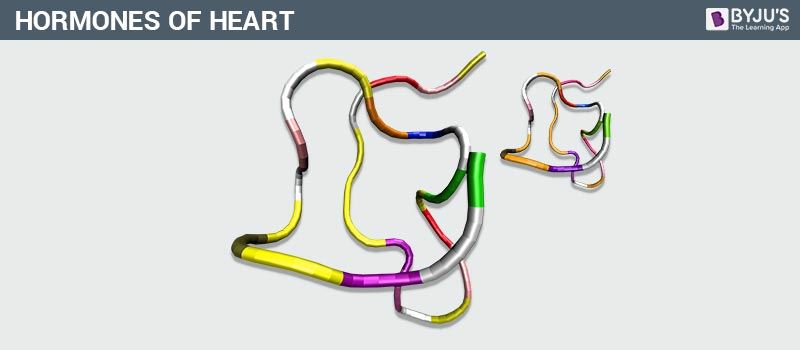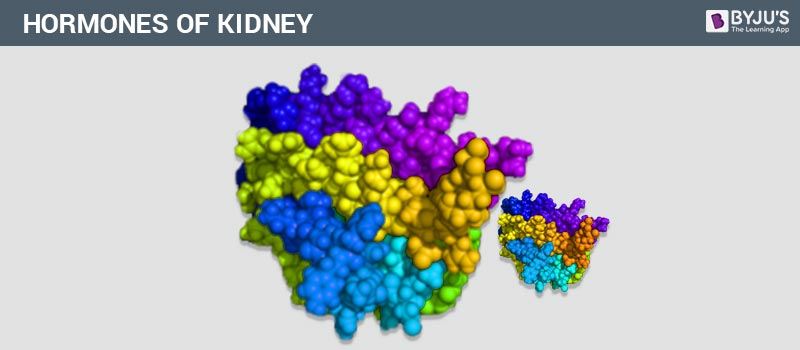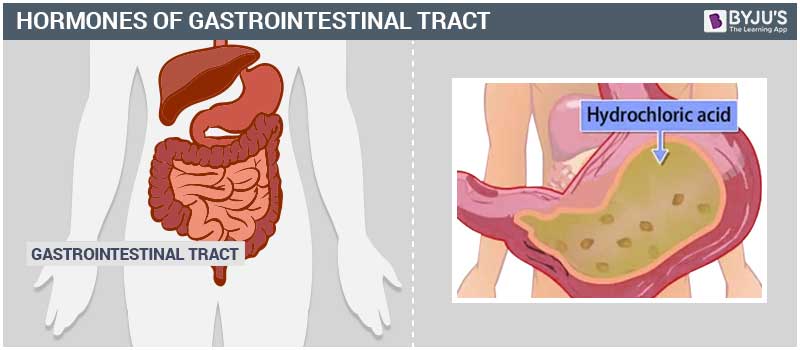Table of Contents
- Introduction
- Hormones by Non-Endocrine Tissues
- Hormones of the Heart
- Hormones of the Kidney
- Hormones of the Gastrointestinal tract
Introduction
The nervous system together with the endocrine system regulates the body’s homeostasis. These systems are in charge of control and coordination in animals. Endocrine glands coordinate and control the body’s metabolism through their secretions are called hormones. Even though hormones secreted in the body are mainly contributed by the endocrine glands, organs such as the brain, heart, lungs, kidneys, liver, placenta, etc. also can secrete hormones.
Let us have a glance at the hormones of the heart, the kidney, and the gastrointestinal tract in the coming lines.
Hormones by Non-Endocrine Tissues
A hormone is a chemical messenger produced by an organism which signals and regulates the body’s metabolism. It is a fundamental element of the endocrine system. However, the tissues/ organs other than the endocrine glands also secrete hormones for the regulation of their activities. A hormone secretion has two sites.
- The site of release.
- The site of action (target site).
For instance, the adrenal gland located on the top of the kidneys (site of release) synthesizes adrenaline hormone which acts on the receptors at target sites such as the heart, trachea, muscle cells, etc.
Hormones of the Heart

Atrial natriuretic factor (ANF) also called an atrial natriuretic peptide (ANP), is a peptide hormone which is secreted by cardiac cells of the body. Heart cells of atrial walls release this hormone to regulate the blood volume and arterial blood pressure. The atrial natriuretic factor is a potential vasodilator, it dilates the blood vessels to reduce the pressure. This hormone is used in response to the high blood pressure, where cardiac cells secrete the Atrial natriuretic factor which leads to vasodilatation (dilation of the blood vessels) and thus, decreases the blood pressure.
Hormones of the Kidney

Erythropoietin (EPO), is another peptide hormone secreted by a non-endocrine tissue, the kidney. It is also known as Haemopoietin. Erythropoietin secreted by the juxtaglomerular cells of the kidney functions by triggering the RBC production in the bone marrow, especially when the oxygen level in the blood reduces. The formation of RBC is called erythropoiesis.
Hormones of the Gastrointestinal tract

Gastrin, secretin, cholecystokinin (CCK) and gastric inhibitory peptide (GIP) are four peptide hormones secreted by endocrine cells of the gastrointestinal tract (GIT). These hormones help in digestion by stimulating the secretion of different enzymes and gastric juices.
- Gastrin: This stimulates the release of HCl and pepsinogen for digestion by acting on the gastric glands.
- Secretin: Secretin stimulates the exocrine portion of the pancreas for the secretion of water and bicarbonate ions.
- Cholecystokinin: CCK stimulates the secretion of pancreatic enzymes and bile by the pancreas and gallbladder respectively.
- Gastric inhibitory peptide: As the name suggests, it has an inhibitory action on gastric glands and thus inhibits gastric secretion.
Growth factors which help in normal growth and repairing of tissues are also a non-endocrine tissue secretions.
Stay tuned with BYJU’S to learn more about Hormones of the Heart, Kidney, and Gastrointestinal.

Comments